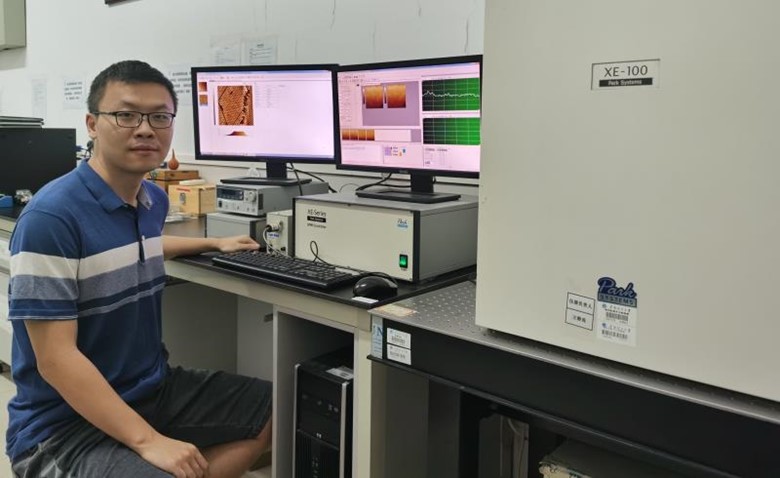
Dr. Jingyu Wang
Jingyu Wang is currently a postdoctoral fellow in South China University of Technology. He received his PhD degree from this South China University of Technology in 2020. During his PhD period, he has been awarded a scholarship under China Scholarship Council to pursue his study in University of Wisconsin-Madison for two years (August, 2018 - July, 2020). Dr. Wang has seven years of experience in atomic force microscopy application including morphology imaging, force measurement, piezoelectricity measurement and other modules. His research works mainly includes intermolecular interaction and solution behavior of natural polymers, precise control of supramolecular structure, and fabrication of natural polymers-based nanomaterials.
1. Please summarize the research you do and explain why it is significant?
Natural polymers possess multiple advantages including eco-friendly, low cost, biocompatible, and biodegradable properties. Such advantages make natural polymers-based nanomaterials exhibit great potential in energy, biomedicine, and electronics fields. In order to deliver these great properties from molecular scale to mesoscopic and macroscopic scale, basic understanding of natural polymers is indispensable. One of my major research focuses on exploring the intermolecular interaction and solution behavior of natural polymers. Another major research of mine focuses on how to precisely control the supramolecular structure of natural polymers. These studies would provide fundamental understanding for the interaction mechanism of natural polymers in solution and significant guidance for the fabrication of natural polymers-based nanomaterials.
2. How might your research be used?
My researches provide the quantitatively interaction results, such as intermolecular force and solution behavior, which reveal the interaction mechanism of natural polymers. From the basic science perspective, these results provide basic thermodynamics and kinetics understanding of natural polymer. From the application perspective, these studies provide significant guidance for the fabrication of natural polymers-based nanomaterials. For example, I explore the interaction between lignin molecules in solution. By revealing the change rule of intermolecular force between lignin, I reveal the self-assembly mechanism of lignin in organic solvent-water mixture and fabricate the uniform lignin nanoparticle with tunable size and great surface chemical properties.
3. What features of Park AFM are the most beneficial and why?
Park Systems is top AFM manufacturer in worldwide. Their AFM possesses various modules, which could realize multiple functions. In terms of my researches, the force measurement module is most helpful. This module enables researchers to obtain quantitative force information of physical, chemical, and biological interactions. By different modification to AFM probe and substrate, I can obtain the force-distance (F-D) curve between natural polymers in different media. Based on the F-D curves, many essential results could be investigated, such as intermolecular force, viscoelasticity and energy consumption.
